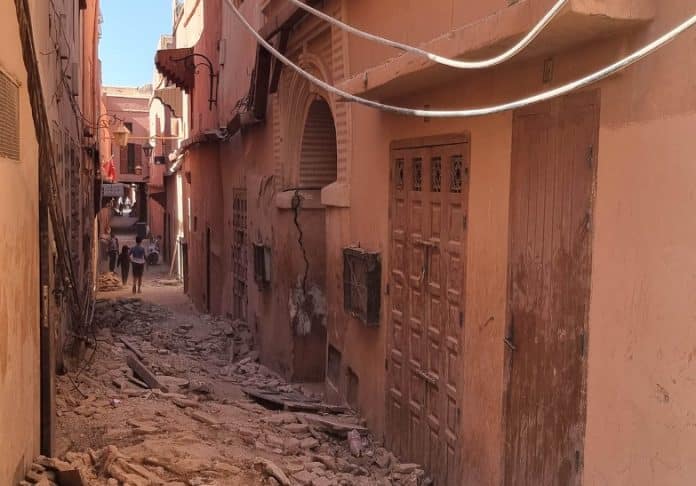The United Nations stands ready to assist the government of Morocco after a 6.8 magnitude earthquake shook the High Atlas mountain range on Friday 8 September.
According to the Moroccan authorities as of 12 September, nearly 3,000 people have lost their lives and more than 5,500 people have been injured. The number of casualties is expected to increase as the search-and-rescue operations continue, says the UN Office for the Coordination of Humanitarian Affairs (OCHA).
The epicentre was located in the High Atlas Mountains, 71 km southwest of Marrakech which, with a population of 840,000, is the most affected city. According to media reports, several houses collapsed and other buildings suffered structural damage. The epicentral area is not densely populated.
UN Secretary-General António Guterres said he was “profoundly saddened” and expressed “his solidarity with the government and people of Morocco in these difficult times.”
The General Assembly observed a minute’s silence in tribute to those who lost their lives in the earthquake. President of the UN General Assembly, Dennis Francis, said he was deeply saddened and sent his deepest condolences to the victims and their families.
“I call on the international community to stand together in support of Morocco in this time of sorrow,” he added.
Hundreds of thousands of civilians impacted by the quake
Initial reports by the World Health Organization (WHO) speak of more than 300,000 civilians in Marrakesh and its outskirts as having been affected by the earthquake. Damage to parts of Marrakesh’s Medina, a UNESCO World Heritage Site, have also been reported.
Moroccan government authorities are leading response efforts; the national rescue and response mechanism has been activated; and civil protection units have been deployed to increase stocks in blood banks and ensure the supply of vital resources including water, food, tents and blankets to affected areas, according to OCHA.
The UN has offered support in search and rescue; coordination of humanitarian assistance and health, said Nathalie Fustier, the UN’s top representative in Morocco. The UN continues close communication with the national authorities to offer its support in the assessment, coordination, and response to the situation. A small UN team has been deployed to enhance the existing UN capacity.
Nathalie Fustier assured that the UN, both on the country level and globally stands ready to join forces with the Government of Morocco: “We have seen that there is a huge mobilisation and, again, we stand ready to assist”.
Children among the most vulnerable
UNICEF says that at least 100,000 children are affected by the earthquake and is following the situation closely, ready to support the Government of Morocco to meet the urgent needs of families. Children are always among the most vulnerable in any emergency, UNICEF warns, adding that many people including children are likely to have been displaced due to their homes being destroyed, or because they are afraid of returning to damaged homes.
According to the Ministry of Education, 530 schools and 55 boarding schools have been damaged, mostly in the Chichaoua and Taroudant provinces.
Several aftershocks have been reported, with families still trapped under the rubble of their homes, and road blockages and difficult geographic conditions remain challenging to conduct search and rescue interventions. Many residents sought refuge outdoors, fearing additional seismic activity and enduring unsettling aftershocks.
Roadblocks caused by the earthquake are gradually being lifted as rubble is being removed. The Ministry of Equipment and Water reported the reopening of 18 national, regional and provincial roads. Efforts continue to clear roads particularly in remote mountain villages.
Spain and UK among countries providing assistance
Spain and the United Kingdom are among the countries that have so far provided assistance.
The UK has sent 60 search and rescue specialists, four search dogs and rescue equipment to Morocco. An Emergency Medical Team from the UK has also been deployed to assess the existing healthcare capacity and the extent of the damage.
Spain’s acting Minister of Foreign Affairs, European Union and Cooperation, José Manuel Albares, announced that Morocco has already officially requested humanitarian aid from Spain, which will send rescue teams to collaborate in the aftermath of the earthquake tragedy.
A plane with 56 Military Emergency Unit (UME) members is the first Spanish humanitarian aid shipment already in Morocco. The acting Minister of Defence, Margarita Robles, confirmed that they are preparing a new plane with the aid that several of Spain’s autonomous communities want to send.

